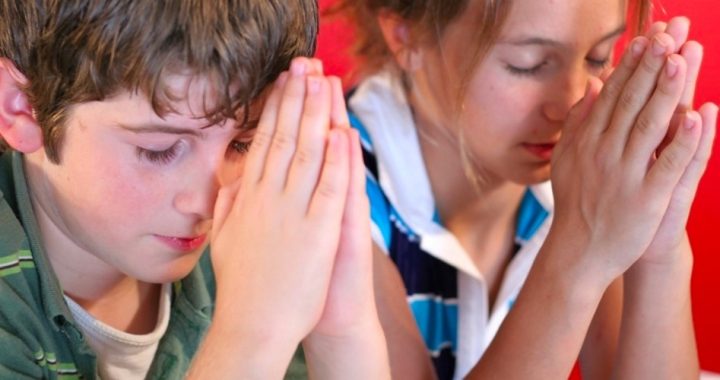
Missouri voters Tuesday overwhelmingly approved a “Right to Pray” amendment to the state’s Constitution, which will almost surely be challenged in federal court. Amendment 2, approved by a vote of roughly 5 to 1, includes a provision that guarantees students the right to take part in prayer in public schools on a voluntary basis. The U.S. Supreme Court held in Engel v. Vitale, in 1962, and subsequent rulings that a school-sanctioned prayer recitation, even if participation is voluntary, is unconstitutional. Justice Hugo Black, in writing the opinion of the Court in Engel, said: “Neither the fact that the prayer may be denominationally neutral nor the fact that its observance on the part of the students is voluntary can serve to free it from the limitations of the Establishment Clause.”
Missouri voters believe “religious liberty is pretty important to them and a high priority,” Kerry Messer, president of the Missouri Family Network, told the Kansas City Star. “The public feels like the Supreme Court took this away from them over 50 years ago.”
Alex Luchenitser of the Washington, D.C.-based Americans United for the Separation of Church and State insists the Supreme Court got it right. “This amendment promotes unconstitutional conduct,” Luchinitser told the Star. “It’s going to result in a whole lot of litigation.”
The amendment, to take effect in 30 days, also protects: the right to pray on public property; the right of individuals and groups to pray in public places, so long as they do not disturb the peace or disrupt a meeting; and the right of legislative bodies to sponsor prayers and invocations. It prohibits the state from coercing religious activity and allows students to refuse to take part in assignments and presentations that violate their religious beliefs. And while Supreme Court rulings have forbidden displays of the 10 Commandments in schools, courthouses, and other public buildings, Amendment 2 requires schools to display a copy of the Bill of Rights. Article I of the Bill of Rights begins: “Congress shall make no law respecting the establishment of religion or prohibiting the free exercise thereof.”
At the time the original Constitution was adopted in 1787 and the Bill of Rights was ratified in 1791, an establishment of religion was generally understood to mean a tax-supported church, whose members enjoyed rights and privileges — including the right to vote or hold office — denied to non-members. Prayers as part of state-sponsored public ceremonies were not an issue. Since some states still had established churches at the time the Bill of Rights was proposed, the prohibition applied only to the federal government and its legislative body: “Congress shall make no law respecting the establishment of religion.” (Emphasis added.) Since the nation had no established religion, Congress was forbidden to establish one. But the amendment also prohibited Congress from passing any laws affecting established religions in states where they then existed. The matter was left up to the states and the people thereof, in accordance with the constitutional principle spelled out in the Tenth Amendment: “The powers not delegated to the United States by this Constitution, nor denied by it to the States, are reserved to the States respectively, or to the people.”
But the Supreme Court, in a number of rulings based on the “due process” and “privileges and immunities” clauses of the Fifth and Fourteenth Amendments, has incrementally applied the prohibitions of federal action in the Bill of Rights against state and local governments as well — so that by the end of the 20th century, “Congress shall make no law respecting the establishment of religion” had come to mean that federal courts would decide whether a prayer at a school assembly or football game, a Christmas concert in a public school or a crèche in a public park may or may not be permitted under the establishment clause.
Critics have argued that the provision in the “right to Pray” amendment allowing students to be exempt from class assignments and presentations that violate their religious beliefs could encourage students to invoke the right when they want to skip science classes dealing with the origins of human life. No doubt the people of Missouri will have many thorny issues to resolve in implementing Amendment 2. Or they would were it not for the likelihood that the theoretically self-governing people of that state will be prevented from doing so by an edict from a federal court.



